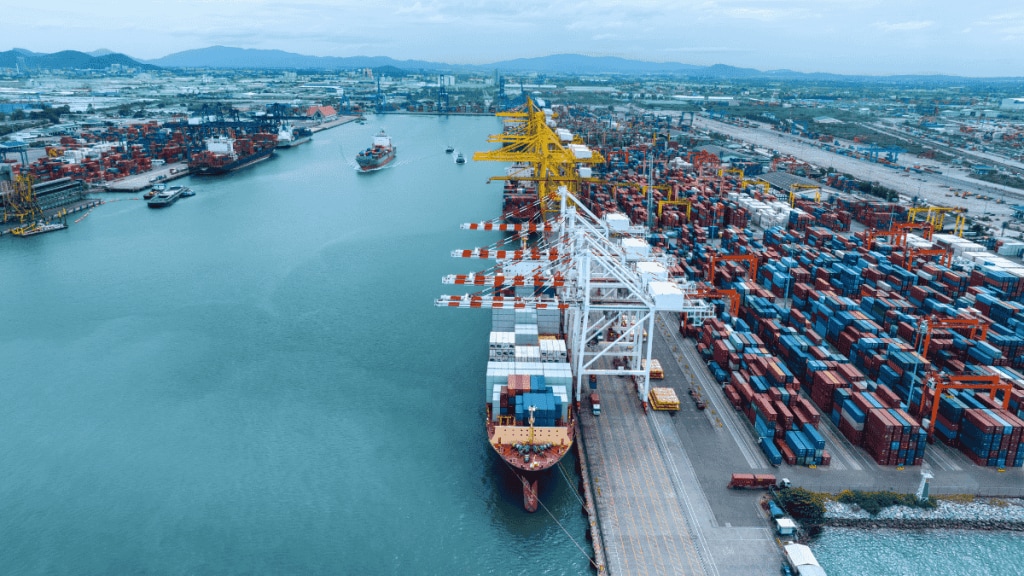Adani Group has ceased to berth vessels sanctioned by the US, European Union and the UK at its multiple ports by issuing orders to this effect to the respective port authorities, and vessels operating at high seas.
An Adani Ports spokesperson confirmed the development to FE, but refused to elaborate on the immediate trigger for the decision.
It is, however, seen to be a precautionary measure taken to avoid any untoward incidents or potential penalties related to the transportation of Russian crude to Indian ports, and safeguard the interests of the company.
Impact on crude hubs
This move directly impacts key crude hubs like Mundra, a critical gateway for Russian barrels into India, said Sumit Ritolia, lead research analyst, refining and modeling at Kpler. “Mundra has handled nearly 400 kbd of crude oil in recent years. Over 50% of arrivals are Russian crude, supplying refiners like HPCL-Mittal Energy (HMEL) and Indian Oil,” Ritola said.
“The port alone accounts for close to 10% of India’s total crude imports. The decision introduces fresh complexity to India’s crude sourcing. While freight costs may or may not rise, refiners now face greater compliance pressures and may need to shift toward alternative logistics or non-sanctioned vessels for Russian crude purchases,” he added.
While Indian refiners have continued their purchases of Russian oil in recent weeks, they must be avoiding sanctioned vessels, analysts said.
Reliance Industries and state-controlled refiners accept the oil cargo largely at their own ports.
Diplomatic significance and bilateral trade implications
Adani group’s move could still have a symbolic effect given that notwithstanding the US pressure, New Delhi has consistently stated that it would continue to import oil from whichever source quoting the best price.
It could still potentially have a positive bearing on the India-US economic ties. The development is also aptly timed as leaders of both sides have recently underscored the need to take forward the stalled talks on bilateral trade agreement between the two countries, in what signalled a thaw. Trump and other US officials had been making antagonistic remarks against India, while the Indian side showed constant restraint.
Commerce and industry minister Piyush Goyal said in Patna Thursday that talks on the BTA are progressing in a positive atmosphere and both sides are satisfied with the headway made so far.
“Prime Minister Narendra Modi and US President Donald Trump had instructed the trade ministers of both countries to conclude the first tranche by the fall or November of 2025. Since March this year the talks have been going on with all seriousness,” he said.
According to analysts, Indian refiners have continued their purchases of Russian oil in recent weeks. “I don’t expect any of them (buyers of Russian oil) to flout (the sanctions) and use the services sanctioned vessels anyway,” said Prashant Vasisht, Senior Vice President and Co-Group Head, Icra.
India emerged as the top destination for grey fleet oil shipments with nearly 64 million tonnes or 9.5% of total oil flows arriving via ‘shadow’ vessels from Russia in 2024, reflecting the country’s growing demand for Russian crude, as per data by global real-time data and analytics provider Kpler.
India imports over 85% of its crude oil requirements with shipments from Russia accounting 40% of oil imports. The country continued to be a steady importer of Russian crude in August despite heightened noise around the issue, particularly following Washington’s late-July statement on enforcing secondary sanctions.
As per Kpler datar, the country imported 1.6 million barrels per day of Russian oil this month, largely unchanged from the last month. However, there has been a notable decline in Russian oil volumes from the peak of 2.1 million bpd purchased in June.
Cargoes loaded in August are expected to discharge in India during September and October. As per Kpler, there has been a notable increase in cargoes as of August-end that have sailed from Russian ports without a declared discharge destination.
Vessel tracking data shows that many of these tankers discharged their previous two to three cargoes at Indian refineries, suggesting India remains a strong potential outlet. “However, it is also possible that some of these barrels could be diverted to other Asian buyers who continue to take Russian crude,” Sumit Ritolia, Lead Research Analyst, Refining & Modeling at Kpler had said.
Kpler said that Indian refiners had been leveraging geopolitical tensions to pressure Russian sellers into lowering prices, and now, with prices aligned to their expectations, buying activity has picked up again. Urals is currently trading at roughly -$3/bbl against Dated Brent on a delivered basis in India, widening from the $1.5–$2/bbl discount seen in late July.
Trump’s statement on Tuesday was the first by him expressing a desire to take the stalled trade talks with India forward, after he on August 6 issued an executive order doubling the additional tariff on India to 50%, for buying Russian oil.


